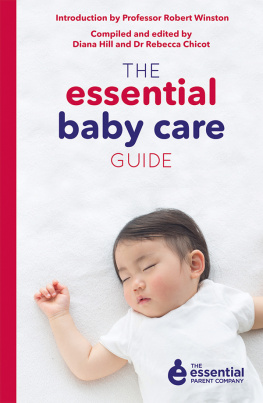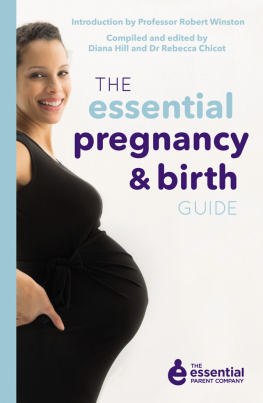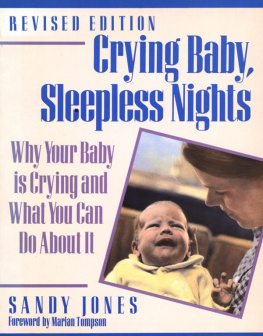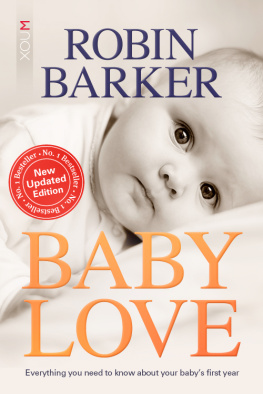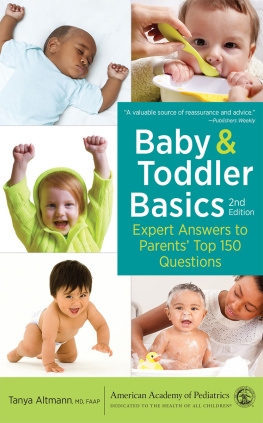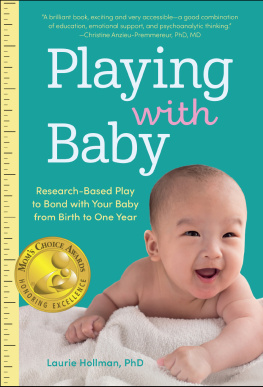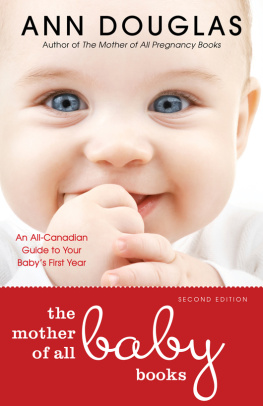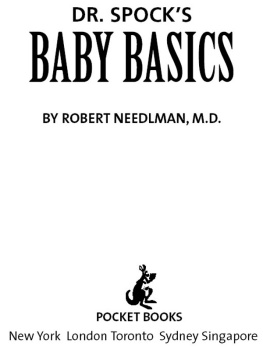Disclaimer
No responsibility for any loss, harm and/ or damage occasioned to any person acting or refraining from action as a result of the material in this publication can be accepted by the authors or the Publishers. This book is not intended as a substitute for professional medical advice, and you are advised to consult a medically qualified practitioner about you and your symptoms.
Publishing Director Sarah Lavelle
Commissioning Editor Lisa Pendreigh
Project Editor Victoria Marshallsay
Creative Director Helen Lewis
Designer Emily Lapworth
Production Director Vincent Smith
Production Controller Tom Moore
First published in 2015 by
Quadrille Publishing
Quadrille is an imprint of Hardie Grant
www.hardiegrant.com.au
Quadrille Publishing, Pentagon House
5254 Southwark Street, London SE1 1UN
www.quadrille.co.uk
Text 2015 The Essential Parent Company
Design and layout 2015 Quadrille
Publishing Limited
Cover photography ucchie79 /
Dollar Photo Club
The rights of the author have been asserted. All rights reserved. No part of this book shall be reproduced, stored in a retrieval system, or transmitted by any means electronic, mechanical, photocopying, recording, or otherwise without written permission from the publisher.
Cataloguing in Publication Data: a catalogue record for this book is available from the British Library.
eISBN: 978 1 84949 691 9
10 9 8 7 6 5 4 3 2 1
By Professor Robert Winston
Imagine if the hugs, lullabies and smiles you give to your baby could inoculate him against the first heartbreaks, tricky-teenager tendencies and even help with exams decades later. Evidence from a new branch of science is showing that this might even be possible after all.
The human brain is made up of over 100 billion neurons or brain cells, each of which connect to more than 2,000 other neurons. Every one of us has connections that are more complex than the London, New York and Tokyo telephone exchanges put together. And this mass of tissue is where we think, see, move, enjoy, get angry, feel sadness, remember and love. Our brains are the most intricate objects in the known universe.
Your babys brain is both complicated and vulnerable, and the experiences your baby has during this period create millions of new connections. Babies who experience insufficient love, laughter and stimulation will stunt the potential development of their brains.
Human babies are born more immature than other mammals calves can stand on four legs less than an hour after birth. Our babies take around a year to learn to stand and walk and even then need so much protection for years ahead. Parenting is more important than we could ever have imagined. Although I have published over 300 research papers in scientific journals, I have no doubt my most important achievement is my own three children. And all of us in different ways are capable of contributing to that next generation.
As parents we can worry so much about things that just arent as important to our children, such as giving them their own room, buying them toys and taking them on holidays. Actually, the most valuable gift you can give to your child is free: its simply your love, time and support.
This is no empty sentiment scientific research is now demonstrating why a babys brain needs love more than anything else. The science of epigenetics (the study of chemical reactions and the factors that influence them) is discovering how our genes are affected by our environment and thus how our brain is affected by the lives we lead. For example, studies show that young mice with loving mothers, who are attentive and lick them caringly, grow up to be better mothers themselves when they have pups, and these children are more intelligent and more sociable. This effect is so strong that it can stretch over two generations and possibly more. Young mice may become better mothers and be able to cope with stress better too, all because their grandmother took good care of their mother. These long-lasting benefits of good parenting are dependent on chemical alterations in the DNA. These same staggering changes in the brains of mice and other animals have also now been confirmed in humans.
I have worked for decades on early development and this science is demonstrating what so many of us have always felt: that depriving children of a loving family environment causes lasting damage to their emotional well-being, their intelligence and their capacity to develop fully. It is for this reason that I have become involved in this guide. We hope this book (www.essentialparent.com) will help answer all your questions and help you feel more confident as a parent.
The evidence of the benefits of breastfeeding to both mother and baby, and the risks of not breastfeeding, are well-established. Breastfeeding has a positive impact on mother-baby relationships, and this strong early relationship and a stable and loving environment are known to help a babys early health and emotional, social and physical development in later life.
Breastfeeding is a skill that every new mum can learn but it takes practice. There are basic techniques and feeding positions to master. Ask your midwife or health visitor or talk to a breastfeeding consultant.
Understanding the importance of skin-to-skin contact, your babys tummy size and the types of milk your breasts produce are all good to know. Theres a lot to learn!
What are the benefits of breastfeeding?
Breastfeeding has some of the most wide-reaching and long-lasting effects on a babys health and development. Healthcare professionals around the world and the UK Department of Health agree that its best to breastfeed your baby exclusively for the first six months, if you can. Breastmilk not only meets all of your baby nutritional needs, but there are a lot of benefits for you as well.
Benefits to your baby
It is perfectly formulated for your babys needs and changes as she develops.
The antibodies in your breastmilk will protect your baby from infection in the early days. She will be less likely to develop childhood illnesses such as asthma and eczema.
Breastmilk contains the hormone melatonin and an amino acid called tryptophan, both essential for sleep.
Your baby is less likely to suffer from gastric infections (gastroenteritis or rotorvirus), respiratory infections, allergies (asthma or lactose intolerance) or long-term diseases such as diabetes or obesity.
It is available whenever and wherever your baby needs to be fed and delivered at the perfect temperature.
It is easy to digest, so babies are less likely to spit up, suffer wind or become constipated.
It improves strength of premature babies.
Skin-to-skin contact during feeding helps regulate your babys temperature and heartbeat.
It makes for an easier transition to solid foods as the flavour of your breastmilk changes according to the foods that you eat.
Benefits to you
It helps with bonding the hormones, including oxytocin, that you produce when you are breastfeeding help bonding.
Its free all you need are a couple of nursing bras, some nursing pads and possibly a feeding pillow.
There is no feeding equipment to carry when you are out and about.
Night-time feeds are much easier and far less disruptive to your sleep and your babys no fumbling in the dark to make up a bottle.
Oxytocin encourages your uterus to contract back to its pre-pregnancy size; it triggered uterine contractions during the birth and continues to do so while feeding. Oxytocin also promotes sleep.

